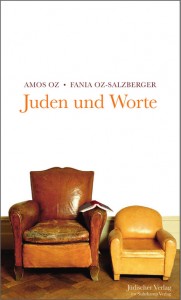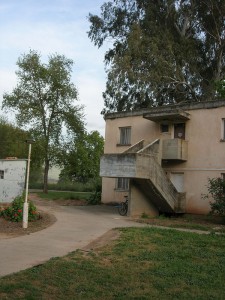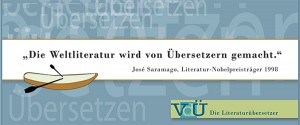A Birthday Tribute to an Inquisitive Storyteller

Book cover of the German edition of “Jews and Words”
© Jüdischer Verlag im Suhrkamp Verlag
On the occasion of his 75th birthday on 4 May, we wish to congratulate Amos Oz, a great writer who visited the Jewish Museum Berlin no less than twice last year. The award-winning Israeli author—he has received, inter alia, the Peace Prize of the German Book Trade (1992) and, more recently, the Franz Kafka Prize for Literature (2013)—and his daughter, the historian Fania Oz-Salzberger, presented their jointly written book Jews and Words (2012) here last October. In four highly entertaining chapters, “secular Jewish Israelis” draw on the genealogy of reading and writing to trace historical continuity in Jewish traditions. They ask which female poet may have penned the Song of Solomon, reflect on other “vocal women,” and philosophize on matters such as the importance of time and the interplay of collectivism and individuality.

Building in a real kibbutz, photo: Mirjam Bitter

In March 2013, Amos Oz paid a visit to the Museum wearing his literary author’s hat, so to speak, to present his latest publication Between Friends (2013, Hebr. original Be’in Khaverim 2012). The eight interconnected short stories in the volume are set in the fictitious Kibbutz Yekhat and immediately attest the author’s familiarity with kibbutz life. Oz left his intellectual father’s home for a kibbutz at the age of fourteen and a half, and lived and worked there for three decades. His descriptions of typical kibbutz settings—the communal laundry, kitchen, and dining room, the cowsheds and chicken coops, huge orchards and swimming pool—instantly made me feel at home, too, since I lived for a while on a kibbutz in the late 1990s. Discussions at Yekhat about the children’s house, on the other hand, situate the action specifically in the 1950s, the Golden Age of kibbutzim.
The stories deal with the universal constants of human nature: love, loneliness, and the struggle to make major decisions in life. → continue reading
Or: Are You up for this Plan?
During the week of 21 to 27 October 2013, the Academy of the Jewish Museum Berlin, in cooperation with Kulturkind e.V., will host readings, workshops, and an open day for the public with the theme “Multifaceted: a book week on diversity in children’s and young adult literature.” Employees of various departments have been vigorously reading, discussing, and preparing a selection of books for the occasion. Some of these books have already been introduced here over the course of the last weeks.

“Meshugge” is one of the words Ace uses to comment on stuff in the children’s novel When Life Gives You O.J. Ace is the extraordinary grandpa of Zelda Fried aka Zelly, Zellybelly, Zeldale, or Zelly-bean. Grandpa has a plan that Zelly finds completely meschugge, as well as downright dumb. But what on earth is a girl to do? She has told her grandpa she is up for the scheme, and Ace would never understand if she were to back out now, or if she failed to muster the chutzpah* to see the thing through. And in any case, there’s still a chance grandpa’s plan may succeed. In which case Zelly’s dearest dream would finally come true—perhaps even before her eleventh birthday! → continue reading
On Behind-the-scenes Labor in the Cultural Economy

“Translators create universal literature.” José Saramago, Nobel Prize Winner for Literature 1998
© VdÜ (Germany’s Union of Literary Translators), design: Christian Hoffmann
Today is Giornata mondiale della traduzione, Międzynarodowy Dzień Tłumacza, Journée mondiale de la traduction, Uluslararası Çeviri Günü or Día Internacional de la Traducción—which is to say, International Translation Day, an occasion established in 1991 by the Fédération Internationale des Traducteurs (FIT: International Federation of Translators) in order to raise public awareness of the cultural impact of the wordsmith’s trade. 30 September is the anniversary of the death in 420 CE of Hieronymus, who translated the Hebrew Bible into Latin. Since ancient times translation has influenced the target language in question, and in the globally networked world of today it is our constant companion. Germany’s Union of Literary Translators (VdÜ) puts it in a nutshell: “Wherever words have been spoken, written, read, or even sung, translators have had a finger in the pie, and indeed they still do; and it is thanks to them that the whole world is at home in its own language.” → continue reading




